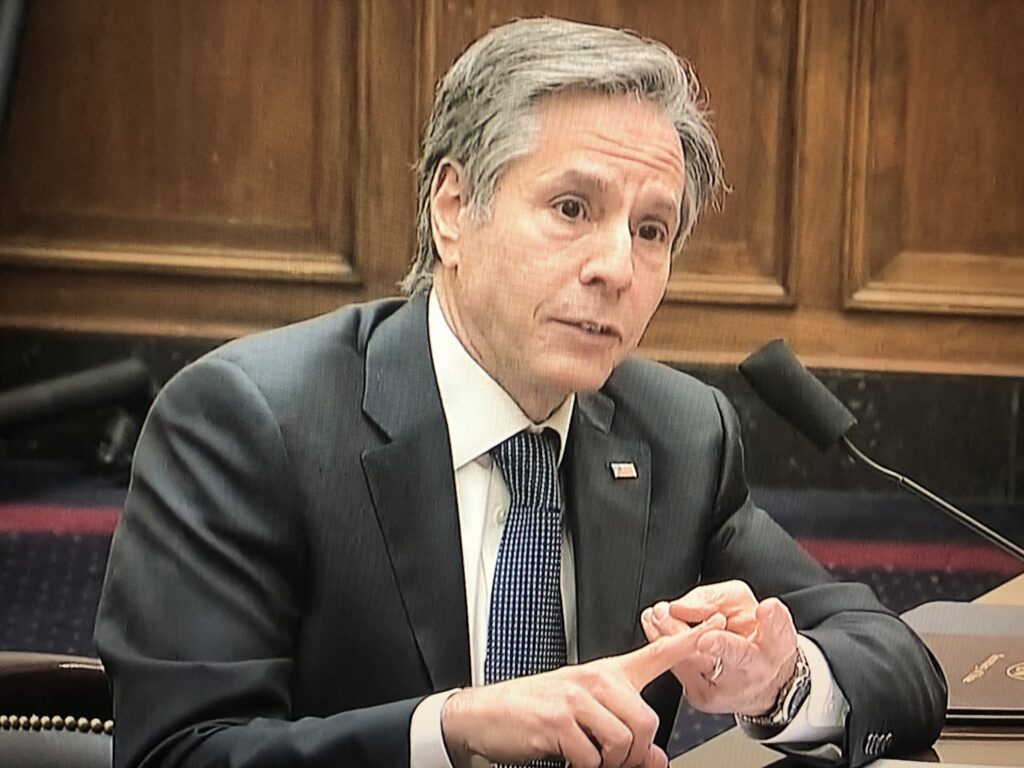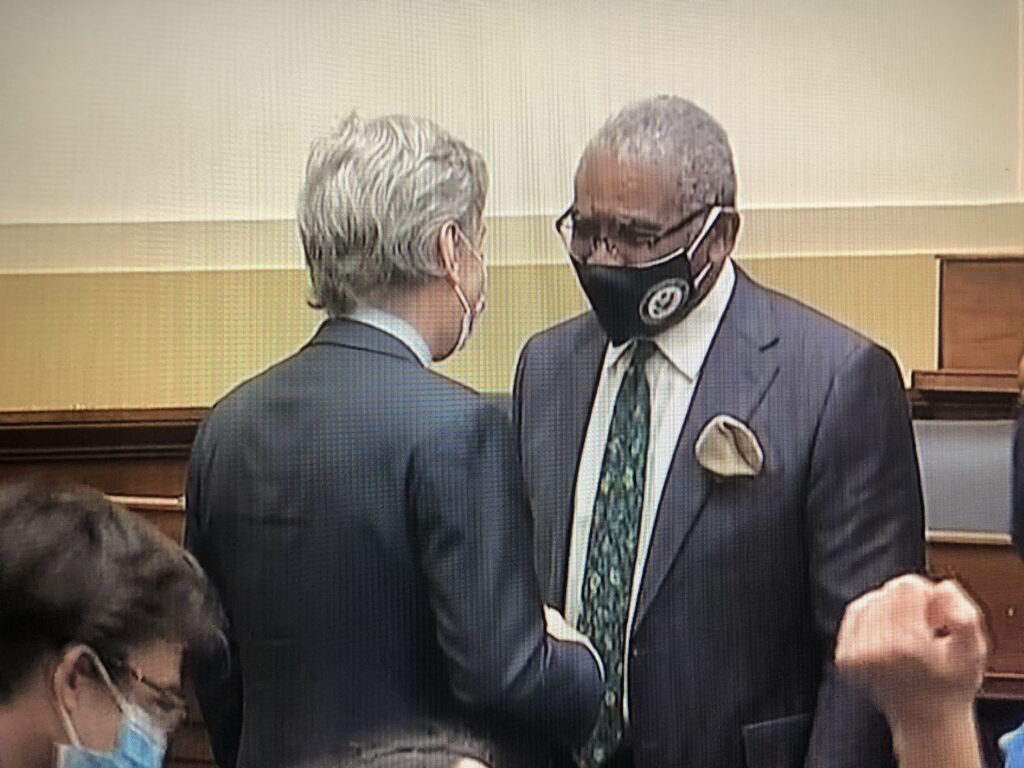Kemi Osukoya
March 10, 2021


During a testimony Wednesday before members of the United States House Committee on Foreign Affairs , Secretary of State Antony Blinken, responding to a question about the ongoing worsening civil tensions and humanitarian crisis in Tigray, Ethiopia, said the U.S. stands ready to assist. However, he emphasized that it’s time for Prime Minister Abiy Ahmed to practice what he preached as peacemaker and show the world that charity truly begins at home.
“Prime Minister Abiy was an inspiring leader who won the Nobel Peace Prize. Now he needs to step up and make sure that his own people in Tigray are getting protections that they need and deserve,” Secretary Antony Blinken remarked in response to a question from Democratic Congresswoman Karen Bass of California, Chair of the Subcommittee on Africa, Global Health and Global Human Rights, on what role the U.S. government plans to play in assisting in the negotiation process regarding the GERD [Grand Ethiopian Renaissance Dam], the great dam in Ethiopia and the current worsening security situation in Tigray.
“With regard to the GERD, we want to do everything we can to facilitate the countries [Ethiopia, Egypt and Sudan] concerned coming together and finding a way forward that meets their interests and avoids conflict, that’s the way we are approaching it,” said Blinken. “The challenge in Ethiopia is pretty significant and it’s one that we’re very focused on, particularly the situation in Tigray where we are seeing very credible reports of human rights abuses and atrocities that are ongoing. I have been on the phone on several occasions with Prime Minister Abiy of Ethiopia, I have talked to other leaders in the region and on the continent and beyond. I very much understand the concerns, for example, that the Prime Minister had about the TPLF (Tigray People’s Liberation Front) and its actions, but the situation in Tigray today is unacceptable and has to change. That means a few things, it means making sure that we’re getting into the region, into Tigray, aid workers and others humanitarian assistance to make sure that the people are cared for, provided for and protected. It’s very important that the government follows through on commitments that is made,”
ADVERTISEMENT
Asked if the situation in Tigray would require peacekeepers to bring calm to the region, the American top diplomat replied that there are currently two accompanying challenges to the security issue in Tigray that need to be addressed first: “One has to do with the armed forces from Eritrea and the adjoining region Amara [that are now present in the Tigray area.]. They need to come out. A [armed] force that will not abuse the human rights of the people of Tigray or commit acts of ethnic cleansing, which we’ve seen in western Tigray that has to stop. We also need full accountability. We need to get an independent investigation into what took place there, and we need some kind of process, a reconciliation process so that the country can move forward, politically,”
Speaking further on another peace and security issues on the African continent—in Mali and the Sahel region, Secretary Blinken stated that it’s important for the United Nations peacekeepers to maintain a strong presence in the region to prevent the security situation from deteriorating further. He also noted that the UN Security Council plans to take up the mandate in June, which “would benefit from us being able to have a chance to talk and think about the best way forward. It’s a challenging situation.”
In August 2020, the Malian government was deposed in a military coup and while a transitional government has been formed with the goal of holding elections in 18 months, the security situation, both inside Mali and the wider Sahel region, remains extremely unstable.
ADVERTISEMENT
Addressing urgent calls from African governments as well as other emerging and developing world leaders demanding for Covid-19 vaccines equatable distributions, the Secretary said one of the ways the Biden-Harris administration is responding to this urgent call is by contributing $2 billion to the World Health Organization’s international vaccine consortium COVAX, along with other resources, plus a U.S.-led global $2 billion matching pledge urging nations to boost vaccines access and distributions to the developing world.
“Beyond that, we are looking across the board at ways that we can really lean in to facilitate access to vaccines around the world because we all know this. We are never going to be fully safe here in the United States until the vast majority of the world is vaccinated because as long as that virus is replicating somewhere, it could be mutating, and if it’s mutating, it could come back to bite us, so this is not simply the right thing to do. It’s the necessary thing to do in terms of our national security and we’re looking at ways to advance that effort,” Secretary Blinken said.
Speaking also about the current Ebola outbreak in Guinea and Democratic Republic of Congo, he pledged that the Biden administration plans to play the same leadership role that the U.S. played in helping to combat and curb the 2014-2015 Ebola outbreak in West Africa—Guinea, Liberia, and Sierra Leone from not going beyond three countries in Africa.
Earlier this month, the Biden administration announced $3.5 million funding through its U.S. Agency for International Development to help fight and curb the recent Ebola outbreaks in Guinea and Democratic Republic of Congo.



